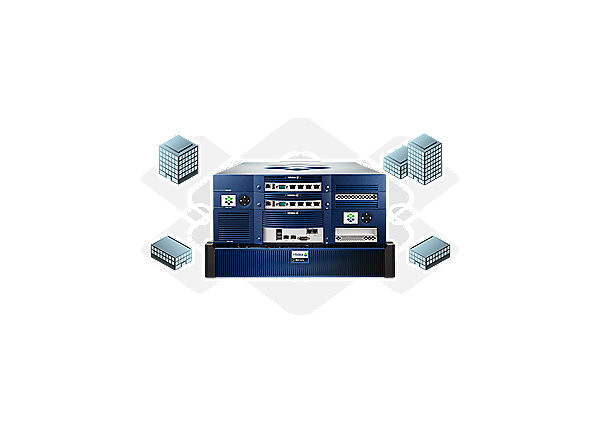In the realm of network management, a DHCP (Dynamic Host Configuration Protocol) server plays a pivotal role. Imagine it as an automated post office for your network, responsible for handing out IP addresses and other essential network settings to devices as they connect. Essentially, a DHCP server is a network server that automatically provides and assigns IP addresses, default gateways, and other crucial network parameters to client devices. This process relies on the standard Dynamic Host Configuration Protocol (DHCP) to efficiently manage network configurations.
A DHCP server’s primary function is to streamline network administration. It automatically delivers the necessary network configurations, enabling devices to communicate seamlessly within the network. Without a DHCP server, network administrators would face the laborious task of manually configuring each device joining the network. This manual approach becomes particularly challenging and inefficient in larger networks with numerous devices. DHCP servers typically assign dynamic IP addresses, meaning these addresses are not permanently tied to a specific device and can change over time, especially when a lease for an IP address expires.
Routers and Switches as DHCP Servers: A Limited Approach
While some organizations still utilize routers or switches as DHCP servers, especially for IPv4 networks, this is often a solution of convenience rather than best practice. Network administrators might opt for this method when needing a quick DHCP setup without immediate access to a dedicated DHCP server. Many routers and switches are equipped with DHCP server capabilities, offering functionalities such as:
- Acting as a DHCP client to obtain an interface IPv4 address from an upstream DHCP service.
- Functioning as a DHCP relay to forward DHCP messages between clients on a local network (LAN) and a DHCP server.
- Serving as a DHCP server themselves, directly handling DHCP requests.
However, employing routers or switches as DHCP servers comes with significant limitations, particularly in environments requiring robust and scalable network management.
Limitations of Using Routers/Switches as DHCP Servers
Choosing a router or switch as a DHCP server can introduce several drawbacks:
- Resource Consumption: Running DHCP server services on routers or switches consumes valuable system resources. These DHCP packet processes are often handled by software, not through hardware-accelerated forwarding, which can strain the device’s processing capabilities. This resource demand makes routers and switches unsuitable DHCP servers for networks with a substantial number of DHCP clients (generally exceeding 150).
- Lack of Dynamic DNS Support: Routers and switches typically lack dynamic DNS (DDNS) support. This means the DHCP server on these devices cannot automatically create or update DNS entries on behalf of clients when an IP address is leased. This absence complicates network management and device identification.
- Difficult Scope Management: Managing DHCP scopes, viewing current DHCP bindings, and tracking leases across multiple routers or switches becomes cumbersome. Administrators must log into each device individually to gather DHCP information, making centralized overview and management impossible.
- No High Availability or Redundancy: Routers and switches used as DHCP servers generally do not offer high availability or redundancy. If the router or switch acting as a DHCP server fails, it can lead to network disruptions as DHCP services become unavailable, potentially causing connectivity issues for clients.
- Configuration Complexity: Configuring advanced DHCP options on router and switch platforms can be more complex and less intuitive compared to dedicated DHCP server solutions.
- Absence of IPAM Integration: DHCP services on routers and switches are not integrated with IP address management (IPAM) systems. This lack of integration hinders address tracking, scope utilization monitoring, and security forensics, which are crucial for comprehensive network oversight.
The Advantages of a Dedicated DHCP Server
For organizations seeking a more robust and efficient approach, especially those supporting both IPv4 and IPv6, a centralized, dedicated DHCP server is the superior choice. Most dedicated DHCP server vendors offer comprehensive support for both IPv4 and IPv6 protocols, often through a unified management interface. The benefits of using a dedicated DHCP server are numerous:
- Enhanced IPv6 Visibility and Management: A DHCPv6 server integrated with an IP Address Management (IPAM) system provides crucial visibility into IPv6-enabled client devices on the network. This is increasingly important as IPv6 adoption grows.
- Efficient IPv4 Address Management: As IPv4 address space becomes increasingly scarce, dedicated DHCP servers, especially when paired with IPAM, enable organizations to effectively track DHCP scopes and optimize lease times. This is vital for managing the influx of BYOD (Bring Your Own Device) systems in modern networks.
- Centralized Logging and Management: Dedicated DHCP servers offer centralized logging and management interfaces, empowering administrators to efficiently oversee IP address scopes. Comprehensive logging provides an essential audit trail of network activity, regardless of the IP version in use.
- High Availability and Redundancy: Dedicated DHCP server solutions often provide redundancy and high availability features. In the event of a primary DHCP server failure, redundant servers ensure uninterrupted DHCP service, allowing clients to maintain their IP addresses and network connectivity without disruption.
- Proven Reliability and Robustness: Dedicated DHCP servers are purpose-built and rigorously tested for DHCP service delivery. For instance, the Infoblox DHCPv6 server is recognized for its reliability, having achieved “IPv6 Ready” certification from the USGv6 certification laboratory.
For organizations embarking on IPv6 implementation or seeking to optimize their IPv4 infrastructure, migrating DHCP services from routers and switches to a dedicated DHCP server infrastructure is a strategic move. This transition enables a unified and robust approach to managing both IPv4 and IPv6 addresses, ensuring efficient, reliable, and scalable network operations.
 Infoblox Trinzic DHCP Server Appliance: A dedicated network server solution for automated IP address management, showcasing the benefits of centralized DHCP in modern network infrastructure.
Infoblox Trinzic DHCP Server Appliance: A dedicated network server solution for automated IP address management, showcasing the benefits of centralized DHCP in modern network infrastructure.
Sourced from the Infobox Community
